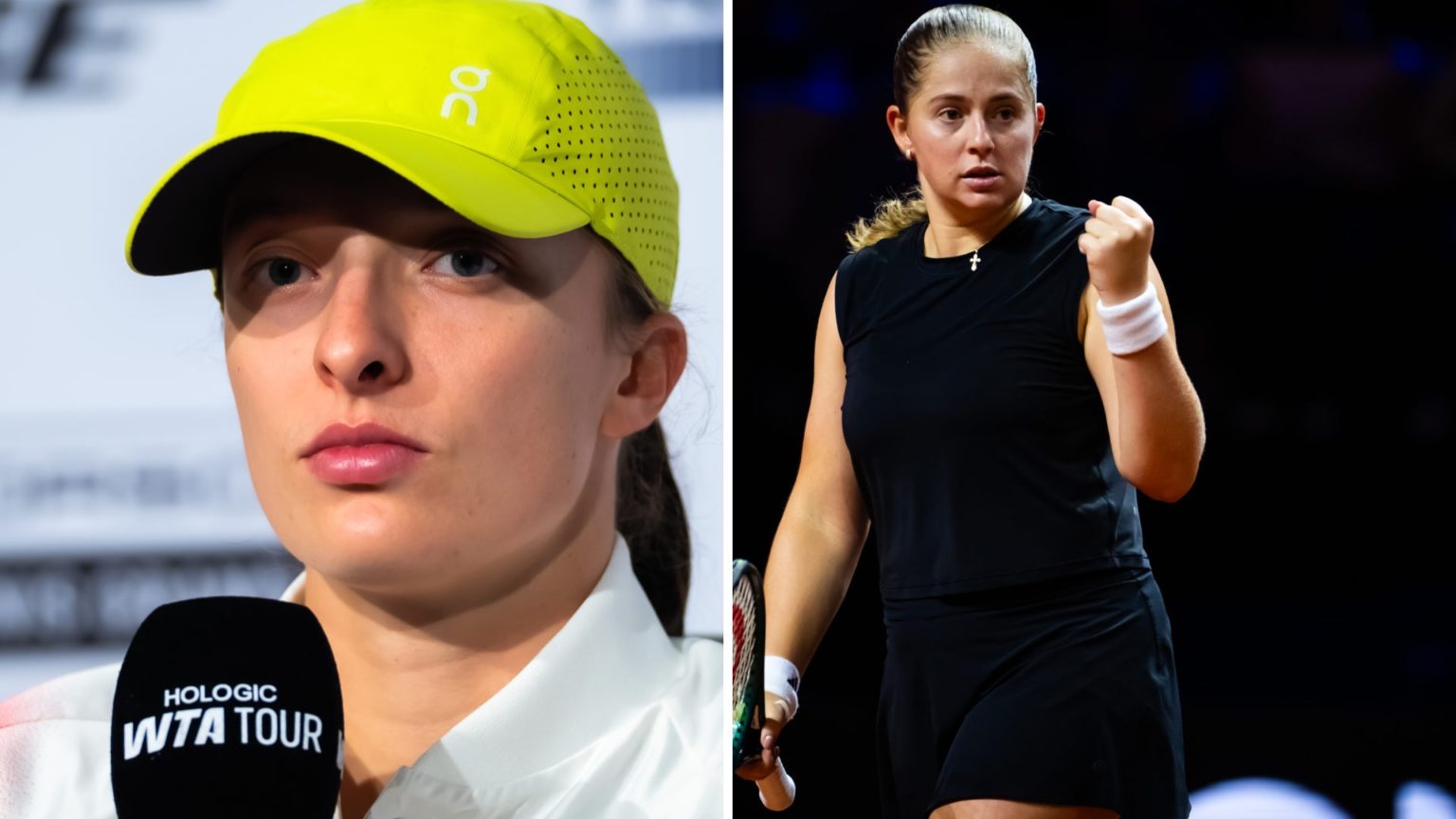
In the pulsating atmosphere of the Porsche Tennis Grand Prix in Stuttgart, world No. 2 Iga Swiatek faced a familiar foe in Jelena Ostapenko, only to suffer a heart-wrenching sixth consecutive defeat. The quarterfinal clash on April 19, 2025, ended with Ostapenko triumphing 6-3, 3-6, 6-2, extending her perfect 6-0 head-to-head record against the Polish star. Reflecting on the loss, Swiatek pinpointed a critical error at the start of the third set that shifted the momentum decisively in Ostapenko’s favor. “I’m disappointed that I couldn’t hold my level in the first games of the third set,” she admitted in her post-match press conference, her voice heavy with frustration. “For sure, it was important.”
The match, a rollercoaster of momentum swings, showcased both players’ strengths on the indoor clay of the Porsche Arena. Swiatek, a two-time Stuttgart champion, started shakily, with Ostapenko storming to a 4-0 lead in the first set, capitalizing on early breaks and Swiatek’s uncharacteristic double faults. “I tried to be aggressive today and take time away from her,” Ostapenko said, explaining her strategy to rush Swiatek’s rhythm, a tactic that has consistently unsettled the Pole. Despite the setback, Swiatek clawed back in the second set, finding her groove with a 75% first-serve point win rate. “I felt better with my serve,” she noted, highlighting how she pulled herself out of a serving slump to level the match.
Yet, the third set proved to be Swiatek’s undoing. After a competitive second set, she faltered early, falling behind 0-3 as Ostapenko’s blistering groundstrokes regained control. “I just didn’t use my opportunities to break back after a bad start,” Swiatek confessed, acknowledging her failure to maintain the tactical discipline that had worked in the second set. She later elaborated, “I knew what I needed to do. I did that in the second set, so it was just a matter of keeping it for the whole match.” Ostapenko, sensing vulnerability, stayed composed, grinding out tough holds and sealing the match with a break in the seventh game. “In the third set, I said, ‘OK, the second set is done, I will fight until the end,’” Ostapenko revealed, her determination evident.
This defeat marks a continuation of Swiatek’s title drought since her French Open triumph in June 2024, a stark contrast to her dominant 19-match clay-court winning streak last year. Ostapenko’s victory, meanwhile, cements her as a rare nemesis, joining Gabriela Sabatini and Agnieszka Radwanska as the only women to win their first six matches against a former or future world No. 1. “I have so much respect for her,” Ostapenko said of Swiatek, adding, “Every time I step on the court with her, it’s another battle, and I’m ready for it.” Her aggressive, low-spin style, which Swiatek contrasted with Aryna Sabalenka’s “more logical” approach, continues to exploit Swiatek’s discomfort against big hitters. “Jelena plays much more risky and with less spin,” Swiatek explained, pinpointing the challenge of countering Ostapenko’s relentless pace.
The loss sparked varied reactions. Some fans on social media criticized Swiatek’s brief handshake at the net, labeling her a “sore loser,” though others defended her competitive nature. “Can a player not be upset she keeps losing to the same opponent?” one supporter posted on X, reflecting the polarized sentiment. Swiatek, addressing claims of irritation, clarified, “I felt like I had my chances, but I just couldn’t use them,” emphasizing her frustration stemmed from missed opportunities rather than personal animosity.
For Swiatek, the defeat is a bitter pill, especially on clay, her favored surface where she’s won four of her five Grand Slams. With over half her ranking points to defend in Madrid, Rome, and Roland Garros, the pressure is mounting. “I’ll take the defeat as motivation to continue working on my game,” she vowed, signaling her intent to regroup. Ostapenko’s win, meanwhile, propelled her to the Stuttgart semifinals against Ekaterina Alexandrova, keeping her hopes alive for a first title of 2025 and the coveted Porsche Macan Turbo prize.
As the clay season unfolds, Swiatek’s rivalry with Ostapenko remains one of tennis’s most compelling narratives. The 23-year-old’s ability to adapt against her Latvian kryptonite will be crucial, especially with the French Open on the horizon. For now, Stuttgart serves as a reminder that even champions stumble, but it’s their response that defines their legacy.
Leave a Reply